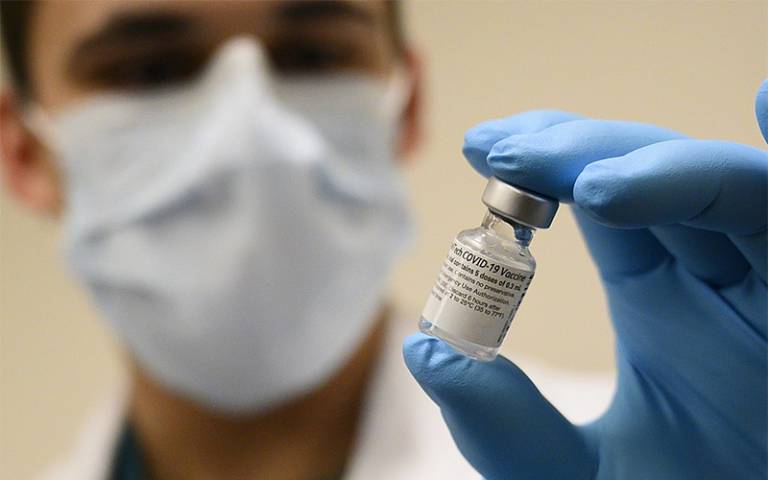COVID-19 recovery requires global response from public and private sector
13 January 2021
Recovering from the COVID-19 pandemic will be a global task requiring international collaboration, say experts in a new policy briefing and lecture, as they warn of repercussions for years to come.

Professor Sir Roy Anderson of Imperial College London spoke about how to end the COVID-19 pandemic in his 2021 Royal Pharmaceutical Society/UCL School of Pharmacy New Year lecture Tuesday night.
The accompanying policy briefing was led by Professor David Taylor (UCL School of Pharmacy). Professor Taylor and colleagues commented on vaccination policy in the briefing, and expressed support for the UK government’s strategy to allow up to 12 weeks between the first and second dose of the vaccine, writing that the fastest possible vaccine rollout is the “most obvious national priority.”
The briefing also describes the important role of community pharmacies in ramping up vaccine and testing capacity, while also increasing public access to other clinical services.
Professor Taylor said: “The COVID-19 pandemic has underlined the importance of universities, professional groups and other public and private sector organisations such as pharmaceutical companies working together in new ways to achieve common goals. In Britain this will be all the more important in future years as the country seeks to recover from the impacts of COVID-19 and faces the economic and social challenges of leaving the EU.”
The keynote speaker, Professor Anderson, is one of the scientists who first generalised the concept of the basic reproductive number, R0, in infectious disease epidemiology in the 1970s and 80s, to define how quickly infections will spread with and without interventions.
He said that developing herd immunity from COVID-19 through vaccination is a global task, requiring the world’s richest nations to support countries across the globe.
Professor Anderson said: “At present the case for accepting COVID-19 immunisation is very clear, both in terms of self, family member and work colleague interests. Later this year, vaccine induced SARS-CoV-2 immunity should also begin to offer a degree of herd immunity in the UK, though there will still be risks of unprotected individuals catching COVID-19 here and abroad. The virus is likely to become endemic worldwide for many years to come, so tracking its evolution is of very high importance.
“Richer countries can best defend their citizens by recognising that promoting herd immunity via vaccination is, together with monitoring COVID-19’s evolution, a global task. It is not just one for individual industrialised nations acting alone. Modern economies depend on high levels of interconnectedness between countries. Controlling COVID-19 in ways which minimise economic harm and protect health in all settings, will require the richer nations giving resources to poorer regions.”
He concluded that there remains hope that the infection and the disease it induces will be much more effectively controlled by early summer.
“Despite early indecision about when to introduce lock down measures, the public can be reassured that the scientific and medical UK response is world leading with regard to managing patients, and tracking both the course of the epidemic and the continued evolution of the virus,” he said.
Links
Image
Pfizer-BioNTech COVID-19 vaccine. Credit: US Secretary of Defense, Source: Flickr (CC BY 2.0)
Media Contact
Chris Lane
Tel: +44 (0)207 679 9222
Email: chris.lane [at] ucl.ac.uk
 Close
Close

